The Work We Do: Planned Parenthood League of Massachusetts
June 14, 2024
In the two years since the U.S. Supreme Court decision to eliminate the constitutional right to abortion, the majority of states have imposed some legal restrictions on reproductive rights, with 14 states getting rid of abortion access altogether. Members at the Planned Parenthood League of Massachusetts (PPLM) organized with 1199 SEIU shortly after that momentous decision was handed down. In July 2022, they voted ‘Yes’ almost unanimously and have since successfully negotiated their first contract. It runs through December 2025 and covers workers in Boston, Worcester, Marlborough, and Springfield. The contract ensures annual raises, including a $2.40 per hour acrossthe-board wage increase, bringing every member above the living wage in the state and boosting the wages of the lowest-paid workers by 13 percent. The 1199 Magazine caught up with a few PPLM members in Boston to learn more about their work. (Editor’s Note: To protect against online harassment, we have agreed to omit their last names.)
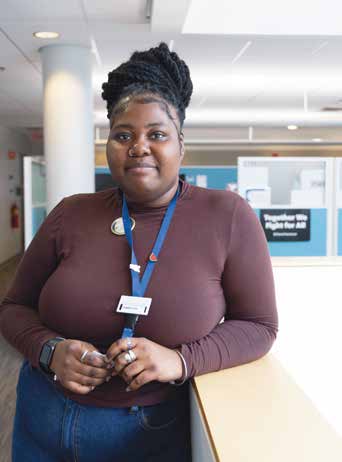
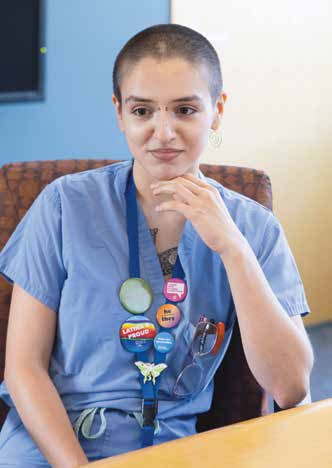
On the clinic intake form there is a space for patients to self-identify their gender and pronouns. For example, Dio uses ‘he’ pronouns.
Because they are unlicensed, the work of HCAs is sometimes under-appreciated, according to Dio. When a patient recently came in for an appointment and the online Spanish interpreter said she could not adequately communicate with the person because she was a native speaker of Quechua—an indigenous language originating in Peru—Dio saved the day. “I am passionate about language access,” he says. “I stepped in and spoke face-to-face with the patient. It turned out she could understand perfectly well and had been incorrectly flagged.”
Dio’s intervention saved the patient from having to reschedule her appointment. “Most of the providers only speak English and are not proficient in other languages,” he says.
Another important aspect of the HCA’s job is phlebotomy. PPLM does not currently pay for phlebotomy certification. That is one reason why members will be negotiating to add the 1199SEIU Training and Upgrading Fund in their next contract, so they can benefit from free training. “It is one thing to be doing something to somebody’s body—but you need to be good at it,” says Dio, adding that patients are often deemed “difficult” when, in fact, the person drawing the blood is simply not proficient enough.
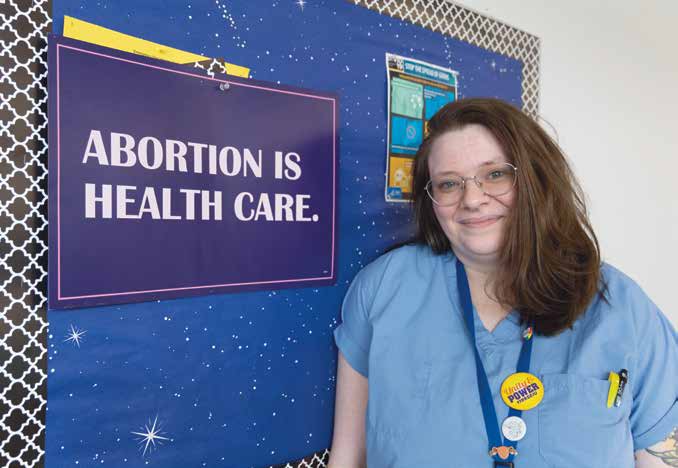
As an active member of the bargaining unit, she has now joined the Labor Management Committee and is about to become a Delegate.
Jocelyn credits a no-holds-barred sex education program provided by her church with her positive attitude towards discussing intimate matters with patients.
Despite her early desire to work in healthcare, she started off in retail. But Joycelyn believes that she’s better equipped for her role in PPLM now that she is a bit older. “It is heavy work and I’m more emotionally equipped now than I used to be,” she says.
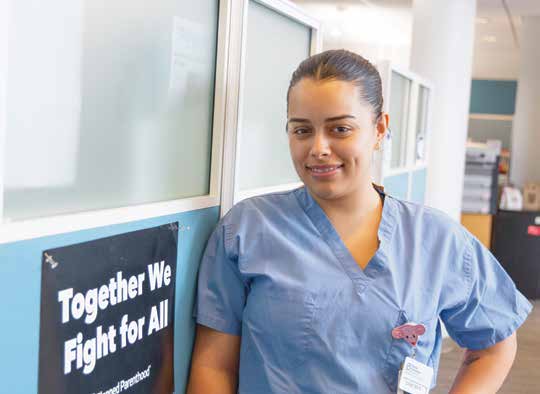
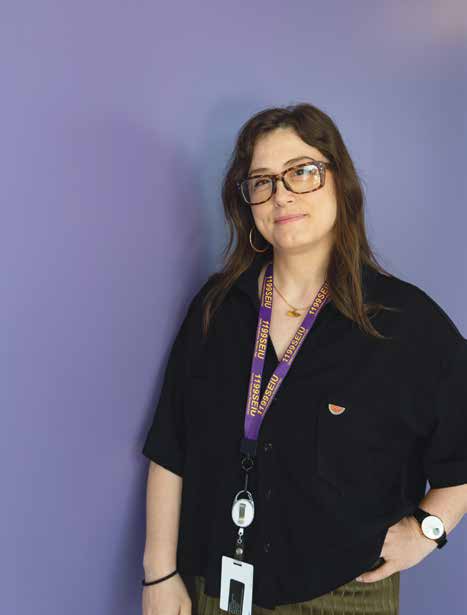
Before starting her current role, Beret was an HCA. As a single parent of two young people, aged 12 and 15, pay was definitely an issue prompting her to become active in the Union drive. “I pay over 50 percent of my wages in rent, and being a parent is costly,” she says. “Things have improved since our first contract was ratified. But before that, there were no clear boundaries around workload. Often, we would not get out of the clinic until 9 p.m.”
The $2.40 per hour pay increase when the first contract was ratified last September was a big help, Beret adds. “We used to have merit increases and the occasional ‘market adjustment,’ the last one was just 60 cents!”

